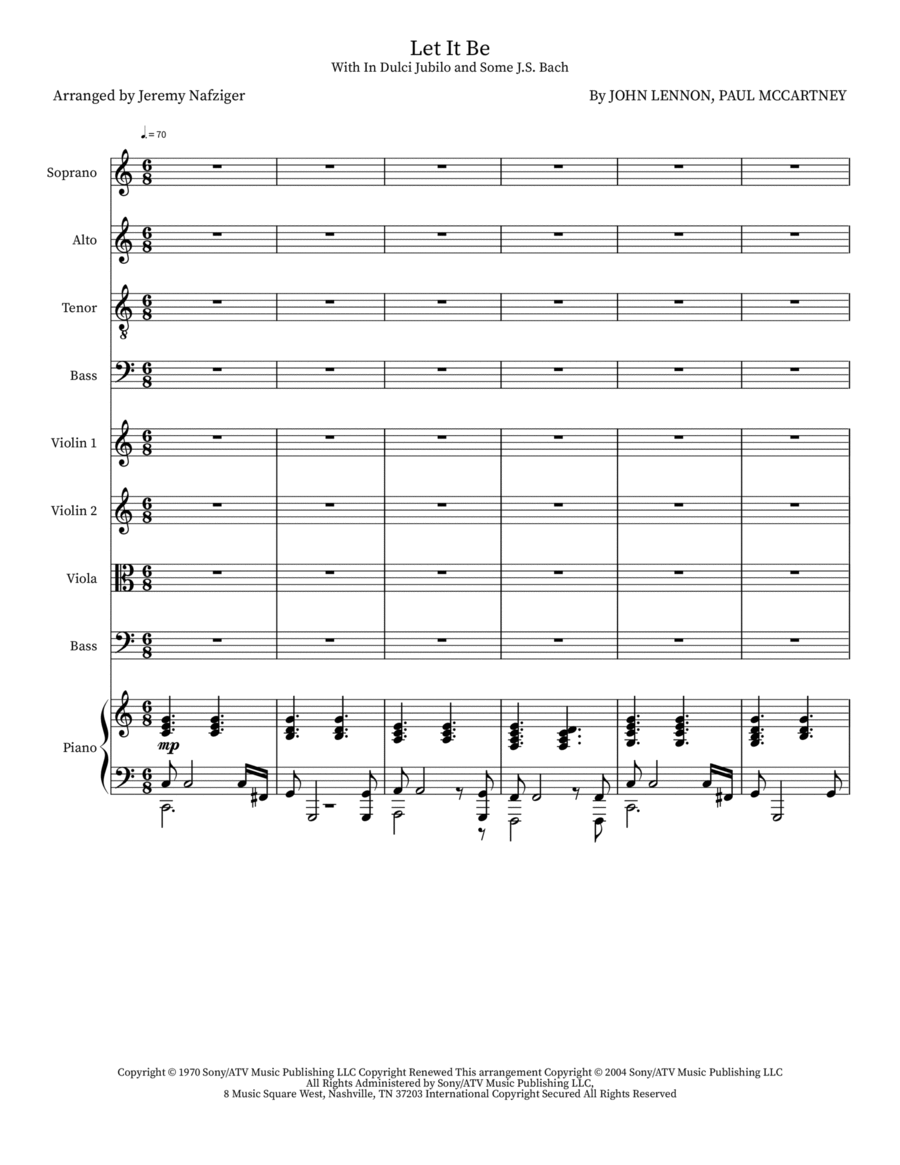Choral Alto Voice,Bass Voice,Double Bass,Piano and Keyboard,Soprano voice,Tenor Voice,Viola,Violin - Level 3 - Interactive Download SKU: A0.481914 By The Beatles. By John Lennon and Paul McCartney. Arranged by Jeremy Nafziger. This edition: Interactive Download. Christmas. Octavo. Duration 286. Jeremy Nafziger #6Re335EyhndYxZ7ALSuj10. Published by Jeremy Nafziger (A0.481914). Key: C major.The Beatles classic with the Advent hymn, In Dulci Jubilo. Both texts come from dreams, and this winds up a meaningful combination. In Dulci was written in the 14th century by German monk and teacher Heinrich Suso (or Seuse), who writes in his third-person autobiography about a dream he had: Now this same angel came up to the Servant [Suso] brightly, and said that God had sent him down to him, to bring him heavenly joys amid his sufferings; adding that he must cast off all his sorrows from his mind and bear them company, and that he must also dance with them in heavenly fashion. Then they drew the Servant by the hand into the dance, and the youth began a joyous song about the infant Jesus, which runs thus: In dulci jubilo... About 650 years later, in 1968, Paul McCartney was staying out late, drinking too much, and thinking that the Beatles were probably going to break up soon. Then one night, somewhere between deep sleep and insomnia, I had the most comforting dream about my mother, who died when I was only 14. She had been a nurse, my mum, and very hardworking, because she wanted the best for us.... At night when she came home, she would cook, so we didn’t have a lot of time with each other. But she was just a very comforting presence in my life. And when she died, one of the difficulties I had, as the years went by, was that I couldn’t recall her face so easily.... So in this dream twelve years later, my mother appeared, and there was her face, completely clear, particularly her eyes, and she said to me very gently, very reassuringly: “Let it be.” It was lovely. I woke up with a great feeling. It was really like she had visited me at this very difficult point in my life and gave me this message: Be gentle, don’t fight things, just try and go with the flow and it will all work out. His mother's name was Mary, or course. He wrote the song in the next few days, and it was released on the album on the same name in 1970, a month after the Beatles split up. As for the actual texts, they're very different. In Dulci is macaronic (alternating between two languages, in this case Latin and a translation from Medieval German) and ecstatic; Let It Be is English and more subdued. In this version, we alternate between the two but keep the Let It Be structure, except for a diversion in the middle where the well-known Bach setting is adopted as kind of an interlude. The two texts and melodies are sung together in the last verse (the fourth In Dulci verse and the third Let It Be verse), where both are talking about music.
